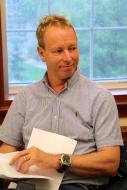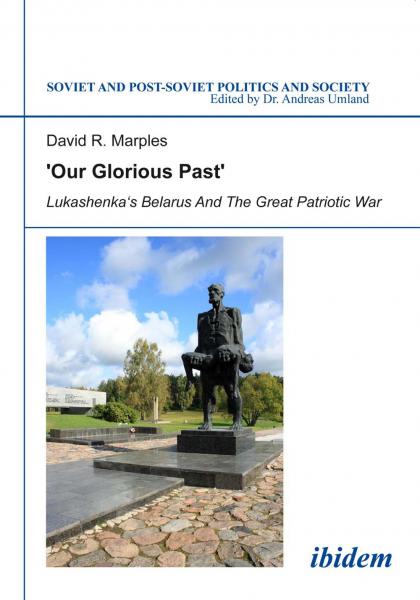David Marples

Education: B.A. Honors University of London (1975), M.A. University of Alberta (1980), Ph.D. University of Sheffield (1985)
David R. Marples is Distinguished University Professor of History at Unversity of Alberta.
David R. Marples, is currently a Visiting Professor at the Slavic and Eurasian Research Center at Hokkaido University in Japan. In the spring he published a new book, 'Our Glorious Past': Lukashenka's Belarus and the Great Patriotic War (Ibidem Verlag, 2014). In September, Dr. Marples will take over as Chair of the Department of History & Classics,  University of Alberta. He is also President of the North American Association for Belarusian Studies (NAABS).
University of Alberta. He is also President of the North American Association for Belarusian Studies (NAABS).
When did you first develop an interest in Slavic, East European and Eurasian Studies?
My interest began during my undergraduate years at the University of London. I developed a fascination with Russian history and took several courses at the School of Slavonic and East European Studies.
How have your interests changed since then?
When deciding on a topic for my PhD, my supervisor, Everett Jacobs (he is no longer active and moved into the business world), suggested I choose one of the non-Russian republics, on the grounds that the Russian field was “overpopulated.” His own PhD had been on Moldova. I chose Ukraine. Though I focused on collectivization of agriculture in the western regions in the postwar years, my first two books were actually on the Chernobyl disaster. During my last year of PhD work at the University of Sheffield (1984-85), I had taken a position as a research analyst at Radio Liberty in Munich focusing on energy and economic issues. Subsequently, I became interested in the impact of Chernobyl on Belarus, beginning a long and fascinating association with that republic/country. I visited Chernobyl in 1989, and have spent some time in affected zones of Belarus as well. Subsequently, I’ve been mainly concerned with issues of historical memory in both countries, particularly regarding the Second World War, and the Famine of 1932-33 in Ukraine, as well as current politics.
What is your current research project?
I am currently editing a volume on the Euromaidan and its Consequences, with the participation of 12 international scholars, some well known others in the latter years of PhD programs. I will contribute an introduction and an epilogue (the latter, for obvious reasons, has become quite complicated!). I am also continuing research on Belarus, particularly, its demographic and social development.
What do you value about your ASEEES membership?
ASEEES has opened a lot of doors for me, especially—but not only—the annual convention, which is the best gathering of scholars I have encountered and has also allowed me to explore the United States regularly. I spent five years on the editorial board of Slavic Review, which remains one of the elite journals in the field. Without ASEEES my scholarly contacts, living in Alberta, would be very limited. I am sorry incidentally that we don’t produce the directory of scholars any more. This is how I found many contacts in the under researched field of Belarusian studies.
Besides your professional work, what other interests and/or hobbies do you enjoy?
I am a voracious reader, mainly of novels, usually starting with one author and reading his/her entire output before moving on to another. I play soccer quite regularly. And I love to travel with my wife Aya, who is Japanese. In addition to research trips to the former Soviet countries, therefore, I spend a lot of time in Japan. And lastly I love all kinds of music, from classical to indie rock.
